Have you ever sipped on a warm, soothing cup of herbal tea and thought to yourself, “This is perfect for winding down; it’s caffeine-free, right?”
Well, I’ve been there too.
And let me tell you, we often assume that herbal teas are entirely caffeine-free, but that’s not always the case.
Does herbal tea have caffeine? No, herbal teas are usually caffeine-free but there can be exceptions!
Now, you might be wondering, “Why would herbal tea contain caffeine? Isn’t it supposed to be a caffeine-free haven?”
That’s where I come into play!
In this post, I’ll talk about: Is herbal tea really caffeine-free, or are there exceptions that could give you an unexpected energy boost?
Stick around to learn it all and more!
How Much Caffeine in Herbal Tea Leaves?
Herbal tea leaves typically contain very little to no caffeine.
Since herbal teas are made from a variety of plants, herbs, fruits, and flowers that aren’t related to the tea plant (Camellia sinensis), they naturally lack caffeine.
Camellia sinensis plant is what traditional tea like black, green, and oolong tea is made from.
This gives herbal teas a unique flavor and a range of potential health benefits.
The thing I like about herbal teas is that they are generally caffeine-free.
That means you can enjoy them without worrying about the jitters or sleepless nights that caffeine can sometimes cause.
Herbal teas are a great choice for people who are sensitive to caffeine or just prefer to avoid it.
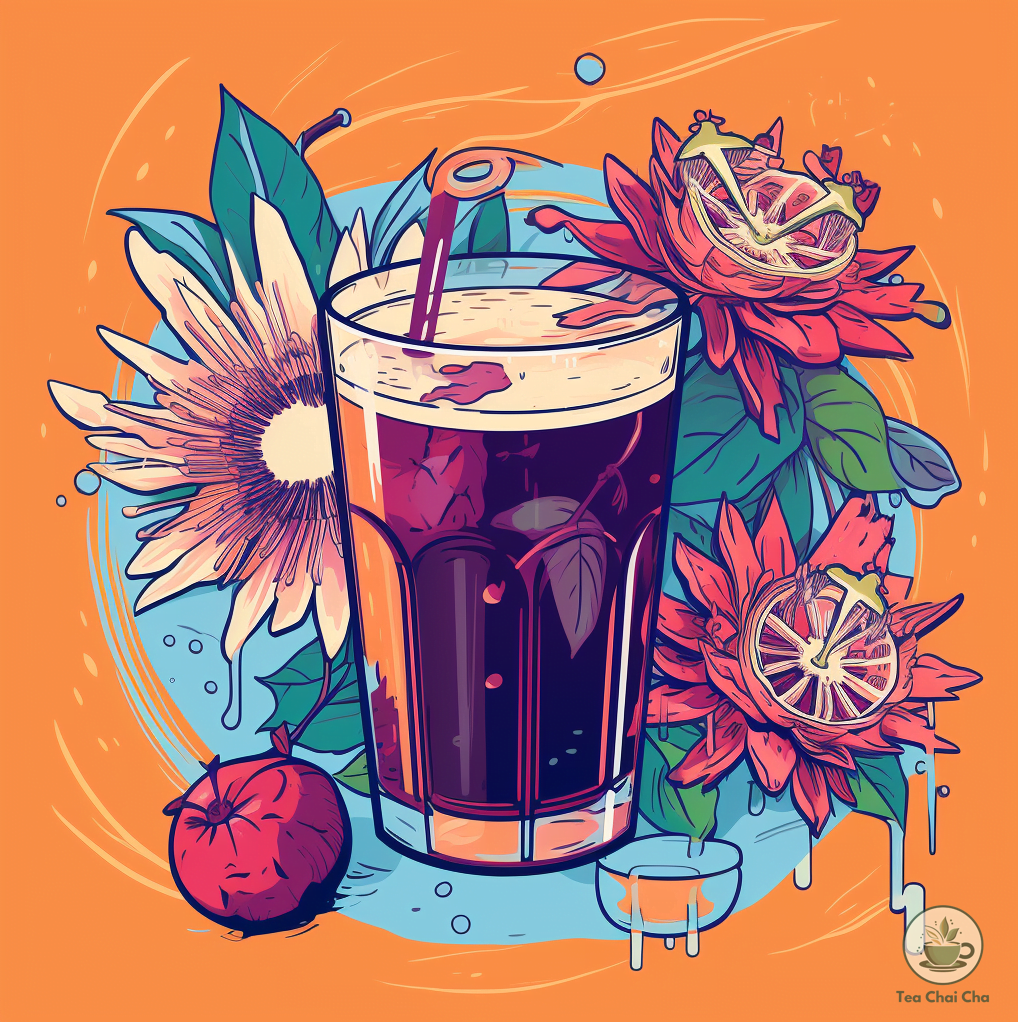
Why Doesn’t Herbal Tea Have Caffeine?
Herbal tea doesn’t have caffeine because it’s made from plants that naturally don’t contain caffeine.
Caffeine is a natural compound found in some plants like tea leaves and coffee beans.
But not all plants have caffeine.
Regular tea, like black or green tea, comes from the Camellia sinensis plant, which has caffeine in its leaves.
But herbal tea, on the other hand, is brewed from different plants, like herbs, fruits, and flowers, which don’t have caffeine.
The reason behind this is simple: caffeine is a natural substance found in certain plants as a defense mechanism against insects.
So, when you make tea from plants like chamomile, peppermint, or hibiscus, they don’t need to protect themselves with caffeine, and that’s why herbal tea is caffeine-free.
Almost All Herbal Teas Are Caffeine-Free
When you brew a cup of herbal tea, you can generally count on it being caffeine-free.
Here are some examples of 100% caffeine-free herbal teas:
1. Chamomile Tea
Chamomile tea is made from dried chamomile flowers and is known for its calming properties.
It’s a popular choice for bedtime because it won’t keep you awake due to caffeine.
2. Peppermint Tea
Peppermint tea is made from the leaves of the peppermint plant.
It has a refreshing and minty flavor and is caffeine-free, making it great for any time of day.
3. Hibiscus Tea
Hibiscus tea is made from the dried petals of the hibiscus flower.
It has a tart and fruity taste and is caffeine-free, making it a wonderful choice for both hot and cold beverages.
4. Rooibos Tea
Rooibos tea, also known as red tea, comes from the leaves of the South African rooibos plant.
It has a mild, earthy flavor and contains no caffeine, so it’s suitable for everyone
5. Lemon Balm Tea
Lemon balm tea is made from the leaves of the lemon balm plant.
It has a gentle lemony flavor and is caffeine-free, making it a soothing choice.
6. Ginger Tea
Ginger tea is made from ginger root.
It’s known for its spicy and warming taste and is caffeine-free, making it a popular remedy for digestive issues.
7. Lavender Tea
Lavender tea is made from the fragrant purple flowers of the lavender plant.
It has a soothing and floral aroma, perfect for relaxation, and is completely caffeine-free.
8. Lemon Tea
Lemon tea is made by infusing lemon slices or lemon juice into hot water along with tea leaves or herbal ingredients.
It has a bright and zesty lemon flavor and is completely caffeine-free.
9. Mint Tea
Mint tea can be crafted from various mint leaves like peppermint or spearmint.
It offers a refreshing and invigorating taste without any caffeine content.
10. Mugwort Tea
Mugwort tea comes from the leaves and stems of the mugwort plant.
It’s known for its earthy, slightly bitter flavor and is caffeine-free, often enjoyed for its potential relaxation benefits.
11. Turmeric Tea
Turmeric tea is made from the dried roots of the turmeric plant.
It has a warm, spicy flavor and is caffeine-free.
Many people drink it for its potential anti-inflammatory properties.
12. Mullein Tea
Mullein tea is crafted from the leaves and flowers of the mullein plant.
It has a mild, herbal taste and is caffeine-free.
It’s sometimes used to soothe respiratory issues.
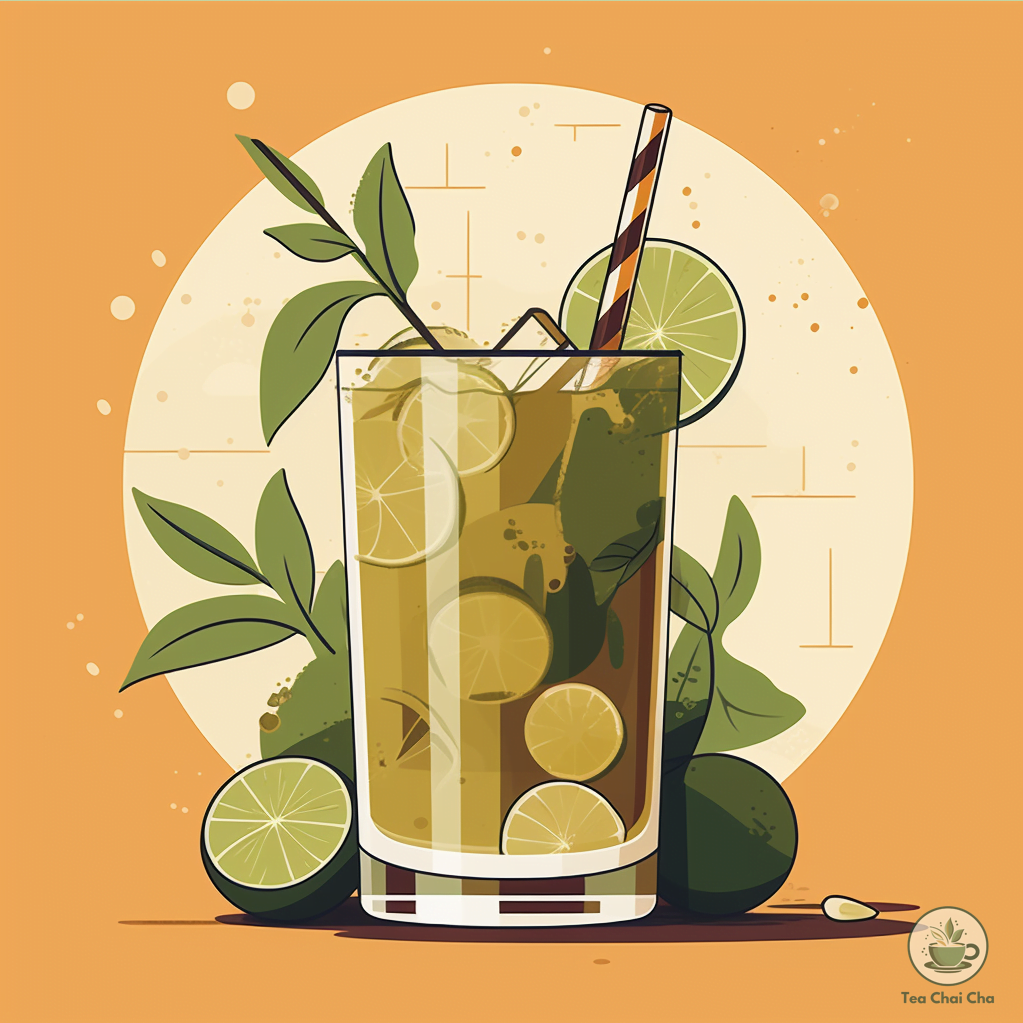
YES, These Herbal Teas Have Caffeine
There’s a lesser-known side to herbal teas – some of them do contain caffeine.
In this section, I’ll introduce you to a few herbal teas that are not from the Camellia sinensis plant (the source of traditional tea) but still pack a surprising caffeine punch.
1. Yerba Mate
In South America, the leaves of the Ilex paraguariensis plant create a unique brew called Yerba Mate.
This herbal tea offers a herbal, woody, and grassy flavor, along with a caffeine kick.
Depending on how you brew it, a standard 8 fluid ounce serving of Yerba Mate can contain up to 80 mg of caffeine.
So, if you’re seeking a herbal tea that’ll wake you up, Yerba Mate might be your go-to.
2. Coffee
Yes, you read that right – coffee can be considered a type of herbal tea.
It’s made by soaking the fruits of the coffee plant in water.
While we usually associate coffee with our morning caffeine fix, coffee bean tea can contain up to 96 mg of caffeine per 8 oz serving.
So, if you’re in the mood for a different kind of caffeine infusion, give coffee bean tea a try.
3. Guarana
Another South American favorite, Guarana, takes the herbal tea game up a notch.
It’s made from the seeds of the guarana plant and packs a punch with 47 mg of caffeine per 1 gram of seeds – that’s roughly equivalent to caffeine in a cup of black tea.
If you’re exploring unique caffeine sources, Guarana is worth a sip.
4. Citrus Flowers
Ever thought that the flowers of citrus plants could contain caffeine?
Well, some do, but the levels are quite low, ranging from 6 to 50 ppm.
You might come across teas made from citrus flowers or even honey produced by bees that visit orange plantations.
But they don’t expect an energy boost from these, as the caffeine content is minimal.
5. Kola Nut
Native to Africa, the kola nut is a source of caffeine that can surprise you.
It contains up to 2% caffeine, similar to what you’d find in coffee beans.
So, if you’re looking for a caffeine alternative with an African twist, consider the kola nut.
6. Guayusa
Holly trees in South America give birth to Guayusa, a herbal tea that can contain up to 60 mg of caffeine per 8 oz cup.
With its energizing properties and unique flavor, Guayusa offers a better choice for those seeking a caffeine-infused herbal option.
7. Cocoa Husk
The outer layer of cocoa beans, known as cocoa husk, holds not only the delightful aroma of chocolate but also caffeine and theobromine.
It can contain up to 12 mg of caffeine per 8 oz cup.
If you adore the essence of chocolate and want a gentle caffeine lift, cocoa husk might just hit the spot.
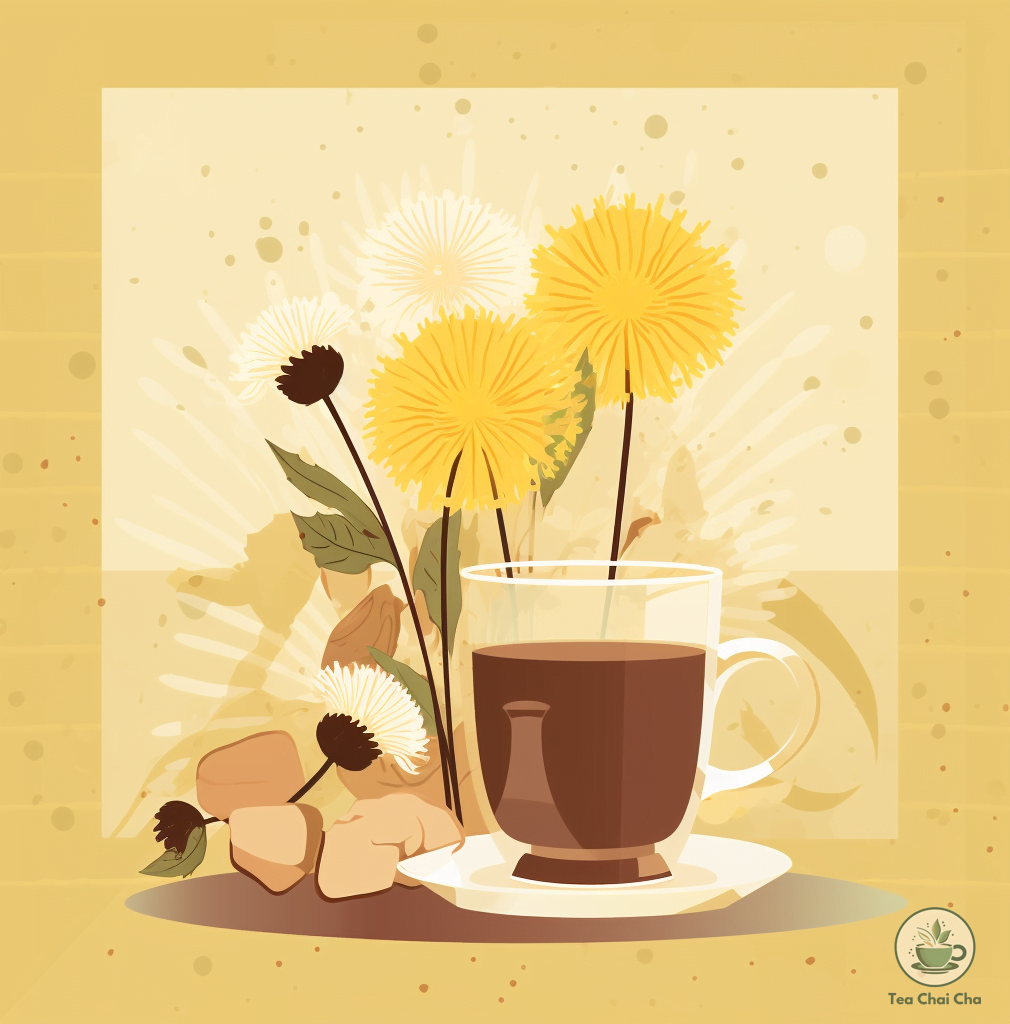
Decaf Tea vs. Herbal Tea: What’s the Difference?
When it comes to enjoying a warm and soothing cup of tea, many people have questions about decaf tea and herbal tea.
Are they the same thing?
Are they caffeine-free? What are the key differences between them?
In this section, I’ll give you a straightforward breakdown of decaf tea and herbal tea.
So, you can better understand your options and make the perfect choice for your tea time.
| Aspect | Decaf Tea | Herbal Tea |
|---|---|---|
| Caffeine Content | Contains a small amount of caffeine, but significantly less than regular tea or coffee. | Naturally caffeine-free. |
| Source | Usually made from Camellia sinensis tea leaves, with the caffeine removed. | Made from various dried herbs, flowers, fruits, and spices. |
| Flavor and Aroma | Has a tea-like flavor and aroma, which can vary depending on the type (e.g., black, green, white). | Offers a wide range of flavors and aromas, depending on the herbs and ingredients used. |
| Health Benefits | Contains antioxidants and may have potential health benefits, such as improved heart health and reduced risk of certain diseases. | Often touted for various health benefits, such as relaxation, digestion aid, and immune system support, depending on the herbs used. |
| Common Types | Decaf versions of black, green, white, and oolong teas are available. | Many types, including chamomile, peppermint, ginger, hibiscus, and more. |
| Popular Varieties | Decaf English Breakfast, Decaf Earl Grey, Decaf Green Tea. | Chamomile, Peppermint, Rooibos, Hibiscus, Lavender, and many others. |
| Preparation | Brewed with hot water, similar to regular tea, and often served with milk, sugar, or honey. | Typically brewed with hot water, but may be enjoyed plain or with added honey, lemon, or other flavorings. |
| Effects on Sleep | Generally considered safe to consume before bedtime due to low caffeine content. | Often chosen for its calming properties and caffeine-free nature, making it a good choice before bedtime. |
| Dietary Considerations | May contain trace amounts of caffeine, which could affect individuals sensitive to caffeine. | Generally caffeine-free, making it suitable for those avoiding caffeine. |
| Customization Options | Can be customized with various additives like milk, sugar, or spices. | Often consumed as is, but can be customized with sweeteners, citrus, or other herbs for added flavor. |
| Overall Popularity | Popular choice for those who want the taste of tea without the caffeine. | Gaining popularity due to its diverse flavors and potential health benefits. |
Decaf Tea
Decaf tea, short for decaffeinated tea, is essentially regular tea with most of its caffeine removed.
The decaffeination process typically involves steaming or soaking tea leaves in water and then using various methods to extract the caffeine.
The result is a tea that contains significantly less caffeine compared to its regular counterpart.
Thus, making it a suitable choice for those who want to limit their caffeine intake.
Here’s a brief overview of decaf tea:
| Aspect | Decaf Tea |
|---|---|
| Caffeine Content | Low to minimal caffeine |
| Flavor | Retains the original tea flavor with slight alterations due to decaffeination process |
| Types | Available in various types, such as black, green, and herbal decaf teas |
| Health Benefits | Contains antioxidants and may offer some health benefits similar to regular tea, but with reduced caffeine-related effects |
Herbal Tea
Herbal tea, on the other hand, is quite different from decaf tea.
Unlike decaf tea, herbal tea is not made from the Camellia sinensis plant, which means it naturally contains no caffeine.
Instead, herbal tea is a beverage made by infusing various herbs, spices, flowers, or fruits in hot water.
Herbal teas come in a wide range of flavors and are often chosen for their unique taste and potential health benefits.
Here’s a brief overview of herbal tea:
| Aspect | Herbal Tea |
|---|---|
| Caffeine Content | Naturally caffeine-free |
| Flavor | Varies greatly, with a wide array of flavors, from soothing chamomile to zesty peppermint |
| Types | Countless options, including chamomile, lavender, ginger, and many more |
| Health Benefits | May offer a range of potential health benefits depending on the herbs used, such as relaxation, digestion aid, or immune support |
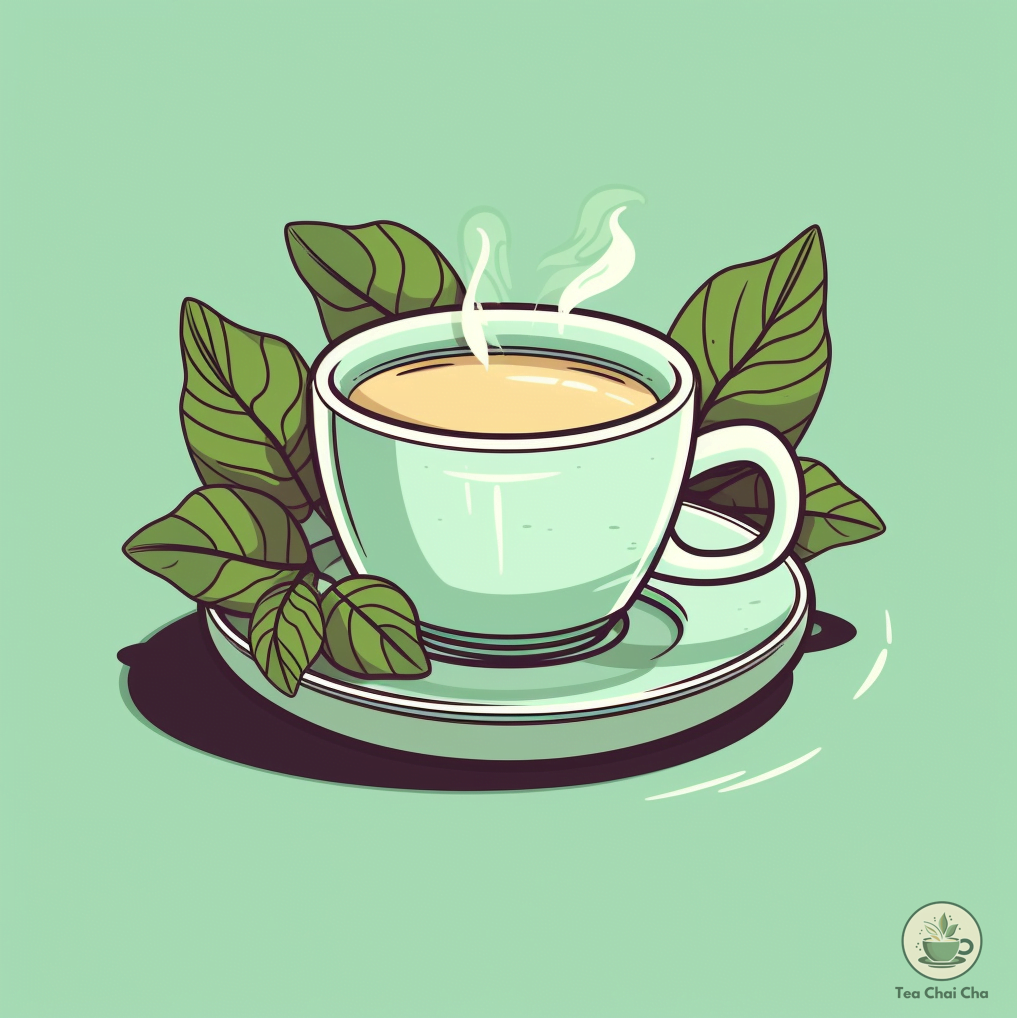
5 Best Herbal Teas for More Energy
Sometimes, we all need a little boost to tackle the day, right?
But what if I told you that you don’t need caffeine for that?
Let me introduce you to some amazing herbal teas that can help you feel more alive and ready to rock.
1. Peppermint Tea
Peppermint tea offers a natural pick-me-up.
You know that tingly, refreshing feeling you get when you brush your teeth in the morning?
Well, peppermint tea is a bit like that.
And here’s the bonus: it can boost your alertness and help your memory.
2. Rooibos Tea
If you’re used to a cup of black tea to kickstart your day, say hello to rooibos tea.
It has a rich, slightly malty taste with a hint of tannins, almost like black tea but without the caffeine.
Plus, rooibos tea gives you a little boost of manganese and zinc, which your body needs.
3. Licorice Tea
Licorice tea is made from the root of the licorice plant and has flavonoid called glabridin.
This glabridin not only fights inflammation but also helps your body regulate energy, so you stay energetic throughout the day.
But a quick heads-up: don’t go overboard with licorice tea.
Too much can mess with your blood pressure and potassium levels, so enjoy it in moderation.
4. Ginseng Tea
Next up, we’ve got ginseng tea – a real powerhouse in the world of herbal energy boosters.
Ginseng has been trusted for centuries to amp up vitality and combat fatigue.
It gives a gentle push when you need it most.
5. Ginger Tea
Last but not least, say hello to ginger tea.
It’s like a spicy, energetic friend that can get you going.
That natural zing in ginger can give you a gentle nudge when you’re feeling sluggish.
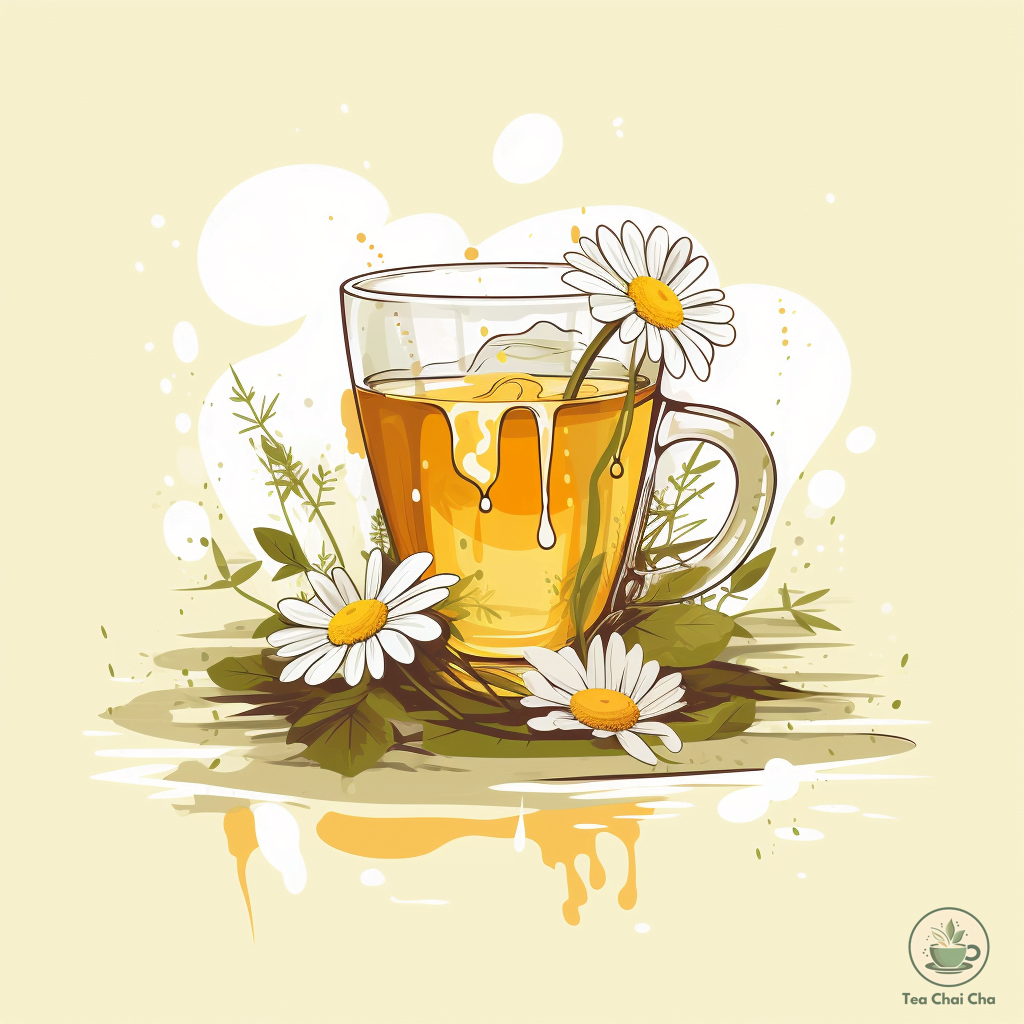
6 Best Herbal Teas for More Calm
Life can be hectic, and we all need a little calm from time to time.
The good news is that nature has a remedy – herbal teas.
Here are some of the best herbal teas to help you find your inner peace:
1. Chamomile Tea
Chamomile tea is like a warm hug in a cup.
It’s renowned for its calming properties, making it perfect for winding down after a long day or preparing for a restful night’s sleep.
The gentle, floral aroma and mild taste make it a timeless favorite for relaxation.
2. Lavender Tea
Lavender isn’t just for fragrances; it also makes a delightful tea.
Sipping on lavender tea can transport you to a serene garden, easing stress and anxiety.
It’s the ideal choice when you need to unwind and find your inner Zen.
3. Lemon Balm Tea
Lemon balm tea is like a sigh of relief.
It has a mild lemony flavor that can soothe nerves and reduce anxiety.
If life has you feeling a bit frazzled, a cup of lemon balm tea can help you regain your composure.
4. Valerian Root Tea
Valerian root tea is a champion for promoting peaceful slumber.
If you struggle with insomnia or restlessness at night, this herbal remedy may be your ticket to dreamland.
It has a distinct earthy flavor, but the tranquility it offers is worth it.
5. Peppermint Tea
Peppermint tea isn’t just for energy; it’s also a great stress buster.
The minty freshness can clear your mind and ease tension.
6. Ashwagandha Tea
Ashwagandha tea is a powerhouse in the world of adaptogens.
It helps your body adapt to stress, keeping you calm and collected even during the stormiest days.
The taste is earthy and a bit bitter, but the serenity it brings is priceless.
Caffeine in Herbal Tea vs. Other Teas
| Type of Tea | Caffeine Content (per 8 oz or 240 ml) |
|---|---|
| Herbal Tea | Generally caffeine-free |
| Green Tea | 20-45 mg |
| Black Tea | 40-70 mg |
| White Tea | 15-30 mg |
| Oolong Tea | 30-50 mg |
| Yerba Mate | 30-50 mg |
| Pu-erh Tea | 30-70 mg |
Caffeine in Herbal Tea vs. Other Beverages
| Beverage | Caffeine Content (per 8-ounce cup) |
|---|---|
| Herbal Tea | Generally caffeine-free or trace amounts (0-5 mg) |
| Decaffeinated Coffee | Typically 2-5 mg |
| Coffee (Brewed) | 95-165 mg |
| Espresso | 63 mg (1 oz) – 126 mg (2 oz) |
| Decaffeinated Espresso | Typically 0-15 mg |
| Soda (Cola) | 22-55 mg |
| Energy Drink | 70-200 mg |
| Cocoa (Hot Chocolate) | 2-30 mg |
Does Herbal Tea Make You Sleepy?
Herbal tea can totally make you feel all cozy and ready for a good night’s sleep.
See, some herbal teas, like chamomile or valerian root, have these special natural things that help your body and mind relax.
So, if you’re having trouble catching those Zzz’s, sipping on some herbal tea before bedtime might just be your secret snooze weapon.
And, it’s a tasty way to wind down, too!
Just remember, what works like a charm for one person might not be the same for another.
But it’s worth a shot if you want to catch those sweet dreams.
Does Herbal Tea Cause Dehydration?
Nope, herbal tea is actually pretty hydrating!
Unlike some caffeinated drinks like coffee or black tea, herbal tea is caffeine-free.
Caffeine is can make you lose extra fluids, but herbal teas don’t have that.
So, sipping on a nice, soothing herbal tea won’t dehydrate you.
In fact, it’s a great way to add some extra hydration to your day, especially if you’re not a big fan of plain water.
Plus, herbal teas come in all sorts of yummy flavors, so you can stay refreshed and enjoy some tasty sips at the same time!
Frequently Asked Questions (FAQs)
Does herbal tea have as much caffeine as coffee?
Herbal tea usually contains only a tiny fraction of the caffeine found in coffee, with most herbal teas having less than 5 milligrams of caffeine per 8-ounce cup.
In contrast, an 8-ounce cup of coffee typically contains about 95 milligrams of caffeine.
Do any herbal teas have caffeine?
Some herbal teas can contain trace amounts of caffeine, but they are exceptions.
Most herbal teas are caffeine-free, as they are made from herbs and plants that do not naturally contain caffeine.
Is herbal tea 100% caffeine free?
Herbal tea is not always 100% caffeine-free, but the vast majority of herbal teas on the market are caffeine-free or have negligible caffeine content.
Always check the label or ask about caffeine content if you want to be sure.
